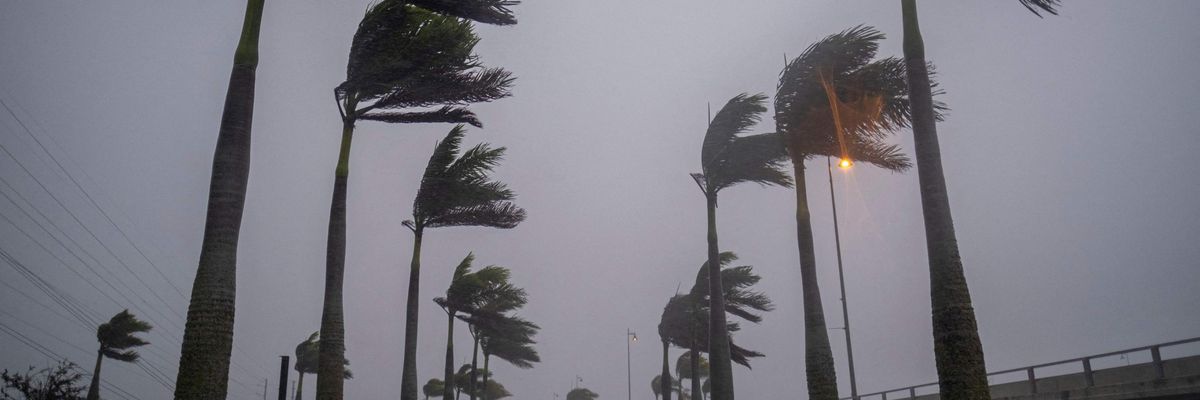The devastating damage predicted for Florida's western coast as Hurricane Ian approached on Wednesday offered just the latest reason for President Joe Biden to declare a climate emergency, campaigners said.
The hurricane, which killed at least two people in Cuba and left the entire country without power before causing major flooding in the Florida Keys Tuesday night, approached the state's coast as a Category 4 storm and was expected to strengthen to a Category 5 before making landfall.
It would be the sixth Category 5 hurricane to hit the U.S., and the second in four years following 2018's Hurricane Michael, which killed 16 people.
As the state issued evacuation orders for millions of people--and shelter-in-place orders for those who have stayed in their homes--and the storm churned toward Florida at 155 miles per hour, the Center for Biological Diversity Action Fund called on the president to declare a climate emergency.
Under such a declaration, Biden could take decisive action to significantly cut the fossil fuel production that scientists agree is fueling the climate emergency and resulting extreme weather events.
The hurricane is expected to hit Charlotte County, south of Tampa, Wednesday afternoon, bringing what the National Weather Service (NWS) warned will likely be "catastrophic" winds, storm surges, rainfall, and flooding.
"These are the last hours to prepare or escape before conditions worsen and Ian arrives in south and central Florida," said the NWS at 7:30 am ET.
NWS Director Ken Graham warned that a "life-threatening" storm surge is expected in western Florida and called the satellite images of the approaching hurricane "heart-wrenching."
The storm is expected to make its way across Florida on Wednesday and Thursday, and Gov. Ron DeSantis has warned the impact will be "enormous" and likely "tragic."
"This is a major, major storm" that will make an "indelible impact" on the state, the governor said Wednesday.
Emergency and fire services have been suspended in Charlotte County and more than 200,000 Florida residents had already lost power Wednesday morning.
Flood waters in the Fort Myers area are expected to reach 12 to 18 feet, according to the National Hurricane Center.
Ian is only the latest extreme weather event to hit the U.S. in recent weeks, and comes just two weeks after Hurricane Fiona caused blackouts across Puerto Rico and dumped 30 inches of rain on the territory.
In July, heavy rainfall in eastern Kentucky--linked to the climate crisis--led to major flooding which killed more than three dozen people.
"Today, Floridians are facing similarly disastrous weather," said the Sunrise Movement. "How can we call this anything but what it is--a climate emergency?"




